We’ve never seen anything quite like Serenity. An absurdist, erotic, fishing film noir, it’s fair to say the film is rather unique, and when we sat down with the writer/director Steven Knight, he explains how why he felt so compelled to create something so unconventional.
It’s not the first time even Knight has presented a film that is unlike anything else, having been behind the excellent Locke, starring Tom Hardy. But the writer – also known for the likes of Dirty Pretty Things and Peaky Blinders – has outdone himself with Serenity, starring Matthew McConaughey and Anne Hathaway.

After years in the industry, having garnered much pedigree in film and TV, was it still a challenge to get Serenity off the ground? Because it’s unique, and I’ve not quite seen anything like it. It’s an erotic fishing noir.
It’s never easy to get a film that isn’t about bats and spiders made, you know. Especially one that is this far out and deliberately trying to subvert what is expected. But, Matthew was in quite early, as was Anne, and that really helped, obviously. Then after that, it was relatively smooth. But everyone went in with their eyes open and knew what it was, and my intentional was always to create a conventional film that is even a little bit heightened, and then pull everything out. Get that car on the road and then smash it into a tree and watch one wheel go down the road. And see how that develops.
As you say, I’ve done a lot of stuff, and I’m always struck by how, particularly the film industry, attracts rules. The three act structure, the character arc, as if those rules are actually what a film is, but they’re not, it’s just one way of doing it. So with Locke I wanted to take a character who no-one would have an interest in, with an event that wouldn’t even make the local paper, and have him, just one person, driving on a motorway. Could you make that into a film? With this, I wanted to take a story and disrupt it entirely and see what happens. Of course you get the howls of outrage which is great, but it’s been interesting in the last 24 hours even, maybe social media has started to kick in, but the reviews are starting to get good which is quite alarming [laughs]. I think people started to talk about it for what it is and what it is, is an existentialist film, deliberately. People are very scared of saying stuff like that because it sounds elaborate and pretentious, but that surely what a writer needs to do, is to look at what’s real.
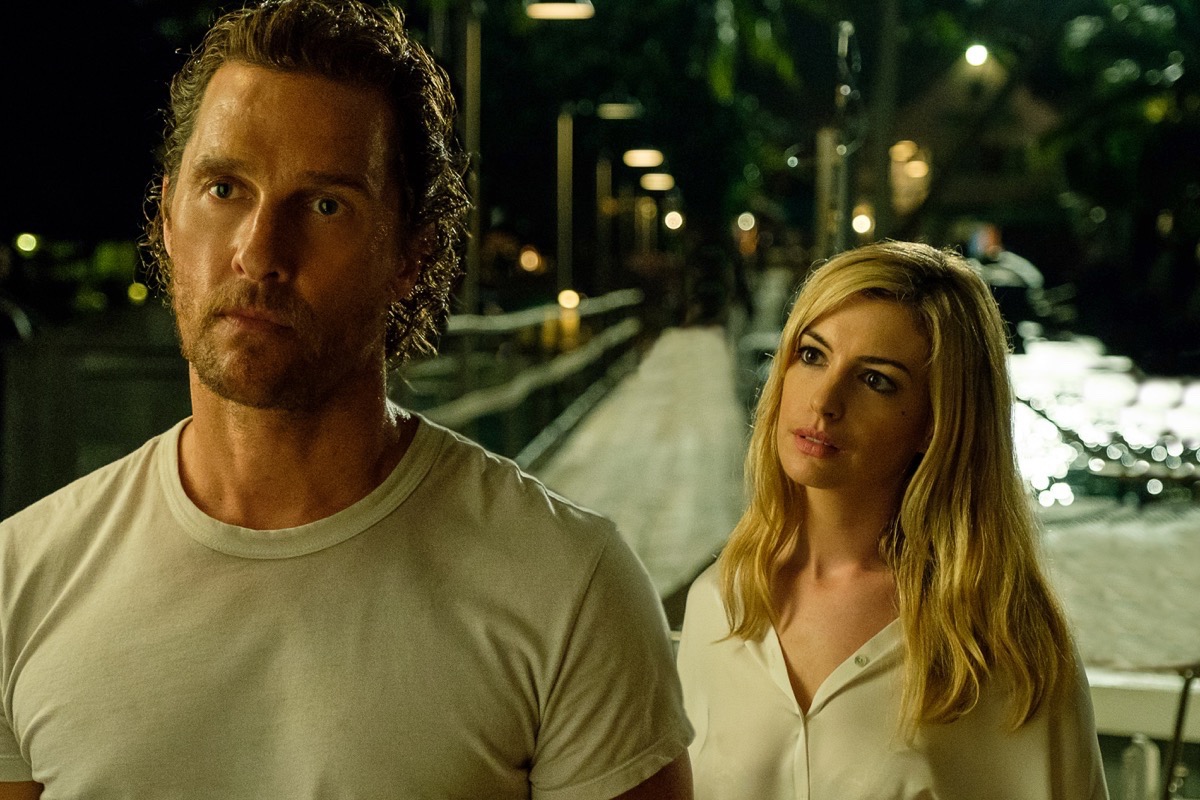
Did you know you would be directing it when you were writing it? And does that change anything about the way you construct a screenplay, when you know it will be yours to direct, as opposed to somebody else?
Certain ideas come, and I think, if I hand this over it won’t get made in this way, it will get changed, because it will be made to fit what’s expected. If I had handed over Locke, we would’ve seen other characters. We’d have come out of the car. With this if I’d handed it over, it wouldn’t have been acceptable to do the twist in the way that it’s done. So when that’s the case I try to keep hold of the thing, so I can control it and make sure it is what I wanted it to be. Whether or not people are prepared for it, or not.
Plus, I fancied being on a boat in the Indian Ocean. No, I’ve been on a fishing boat out of St. Lucia, it was tuna fishing, which I like to do. And the captain was a particular character who was very nice, until a little fish bit, and then he became obsessed. That obsession interested me because it plays into the whole tradition of the American hero, going back to Captain Ahab, the sort of dislocated, out of place, mysterious male, adrift, literally adrift on a boat. So I wanted to create a story around that person, find out who that person is and why is he like that, and then at the most inconvenient moment we disrupt it, we take everything away. I think it loops back into Captain Ahab, because he’s this gruff loner captain who in fact is searching for what’s real, he’s looking at existence as he looks out at the ocean, he’s trying to find a whale, and hopefully this is what Baker Dill is confronted with, he’s like a practical man who goes fishing and is suddenly confronted with this bizarre problem of, am I real?
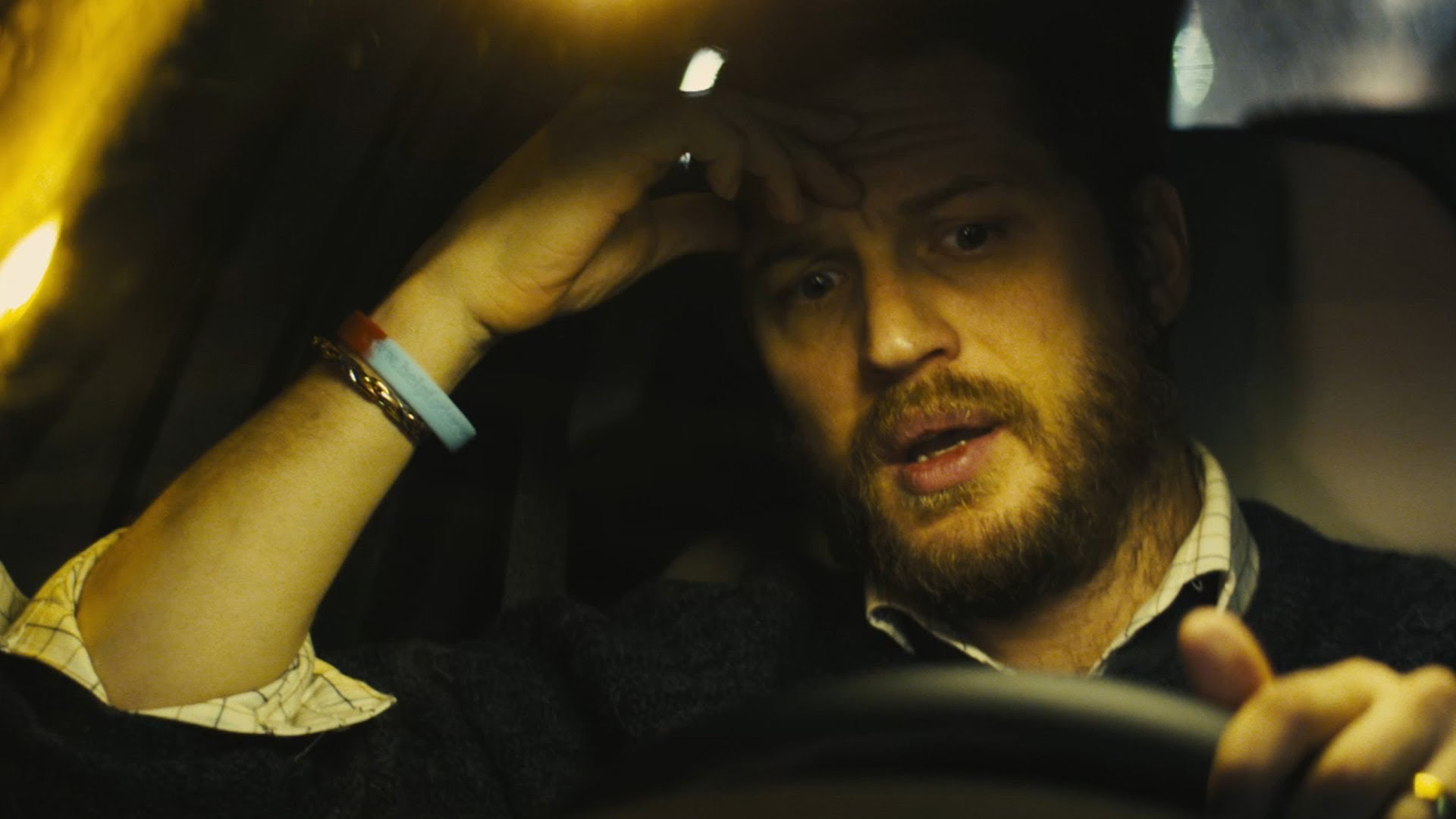
I generally find when you see a film with a big twist in it, when you go back and watch it a second time, on that viewing you spot all of the little clues. But in this, I honestly think I could watch it again and still the rug would be pulled from under my feet.
Yeah, I didn’t want to give away too much because film audiences are so clever, they’re so literate and they’ve been around the block, so any little clue and the whole thing would fall apart, so I tried to keep it as minimal as possible.
You mentioned the theme of obsession, and Matthew McConaughey as an actor has this remarkable ability to display desperation, where he looks like he will go to the point of insanity to get what he wants. You must’ve been thrilled about what he brought and added to this character that you created?
Yeah, he’s got that magic ability where if he’s on screen, you’re looking at his eyes to find out what’s the story. No matter what else is going on, he is your way in to the story, and what’s so beguiling is that he doesn’t let you in. You just have to guess. You can see who he is, you can see what he’s doing, he’s putting bait onto hooks, but there’s so much more going on, and I think only certain actors can pull that off.
You’ve mentioned this archetypal, Hollywood hero, did you speak to Matthew about certain actors to take inspiration from?
Matthew got it even before we’d first met because he’d read the script and understood what the task was and what we were trying to do. It’s quite an ambitious experiment to try this, and he was great. When we were in Mauritius, he had this huge piece of card, twice the size of an A5, and on it he’d written, in each scene where Baker Dill was in his view of reality and in what was real and what wasn’t, because we’re shooting out of sequence, so he can look at where his character is, and he’s got all his notes scribbled next to it, and references and things, so he was really thorough, it was amazing.
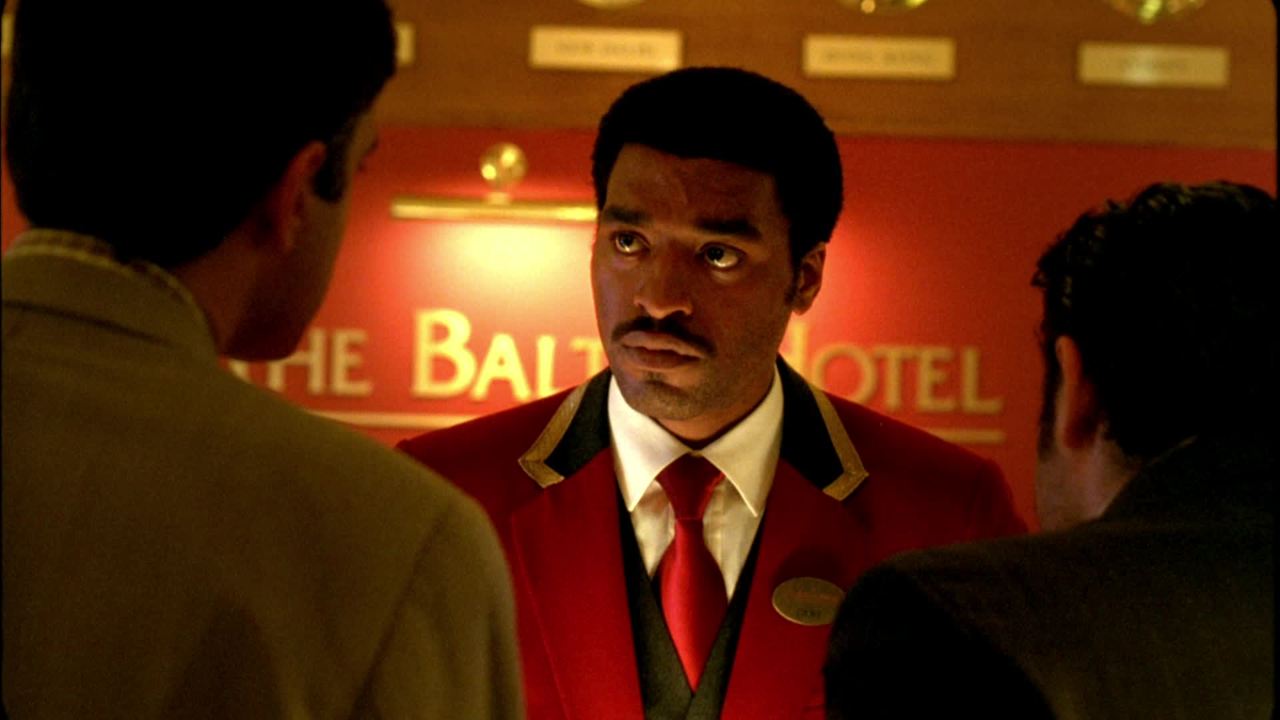
I was a huge fan of Locke, and as a writer and a filmmaker you’re always seeking to turn the idea of a conventional narrative structure on its head. It’s very easy when first writing a screenplay to write it with rules in place, because you feel like that’s how it’s done. So what inspired in you that sense of creativity and rebellious streak to try things completely different to everyone else?
I do the conventional stuff when I do a studio commission, and that’s fine. It’s not a question of not knowing the rules, it’s a question of wanting to break the rules when it’s something I’m doing for myself. The problem I think is that when a writer sits down, they think they have to make it as much like something they’ve seen as possible, because that’s a proper film is. Whereas I think people should say, the task here is to get a group of people into a room, turn off the lights and get them to look at that screen for two hours, it doesn’t matter how, just do it. And do anything. You don’t have to have three acts. You don’t have to have an arc. You don’t have to have anything. Just get them to watch. And I think it’s only worth doing something, when I’m directing, if its going to not be what everyone is expecting, because what’s the point?
As a storyteller, do you think you’re always, even sub-consciously, seeking stories? Because it’s your craft and it’s what you do, if you’re on holiday and you’re walking down the street, are you on the lookout for ideas?
It’s funny because it’s not a conscious thing, but I’ve decided it’s similar to when you have your day, you do what you do, and then you go to sleep at night and you dream – and bits of what happened in the day show up in the dream, or people you know show up in the dream, and somehow you’ve absorbed something and found something important, some part of your brain has found something important and is recycling it in the dream. I think the writing process for me is a very similar thing, where certain things get absorbed and there they are. When I’m writing what I tend to do is just let it go and sit at the keyboard and then read it back and see what’s there, and it’s a bit like dreaming. So if you go out fishing on a boat, I probably didn’t even think about it for six months, but then something triggered something and I thought about that person, that snapshot.
You’re working on Rio now, which I gather is another noirish thriller?
Yeah, but I really try not to stick in genres if I can, because I think it’s really reductive and it means you can’t do certain things because it doesn’t fit into certain genres, but yeah, you could say its that.
Jake Gyllenhaal and Benedict Cumberbatch involved. What’s the current status of that at the moment?
I think we’re shooting it this year.
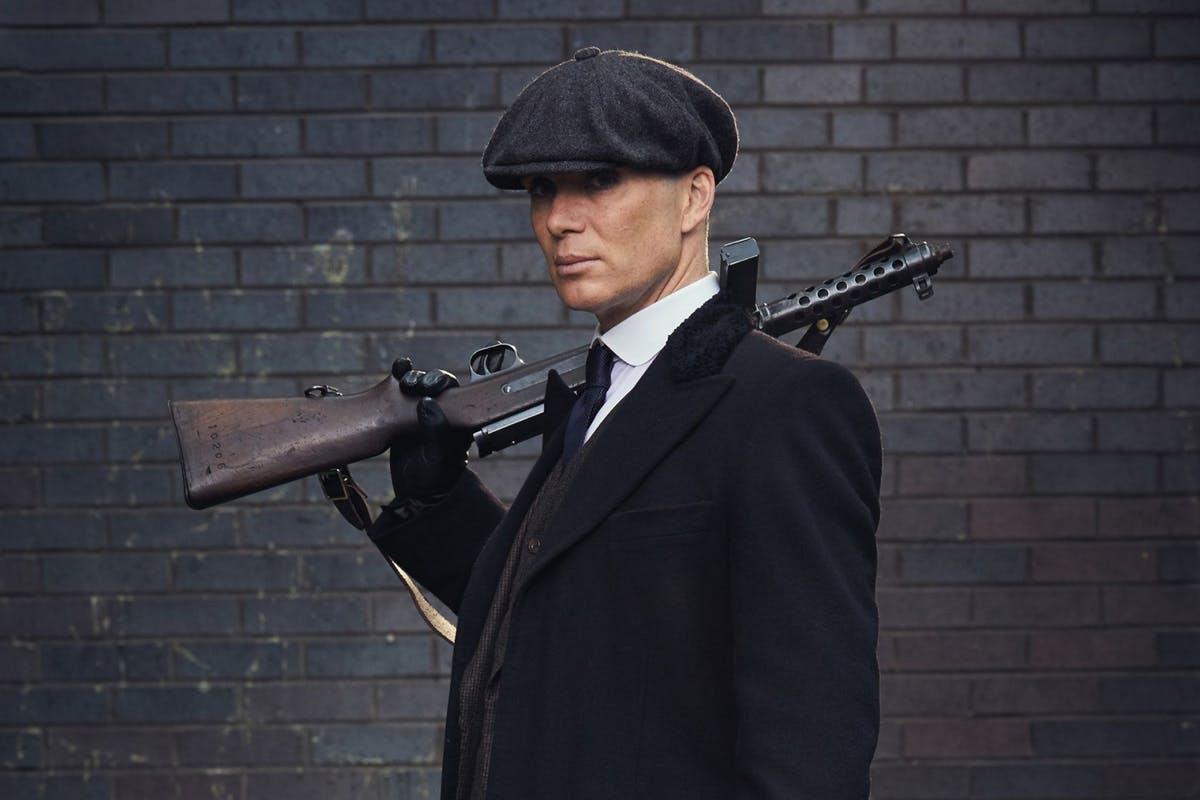
It’s also relatively topical at the moment with Roma doing so well, and with a lot of your work on streaming services, I was wondering where you stand on the streaming debate? A lot of people felt Roma had to be seen in the cinema, but then the other side is people saying that more people will see it thanks to the accessibility of Netflix. Are you a fan of the way we now interact with cinema these days?
I think it’s inevitable, it’s the future. As long as it is available in the cinema as well, then people who really want to see it in the cinema can. I think things have changed and it’s underestimated how the fact that screens at home now look so impressive. Not that long ago a television was a little brown thing in the corner of the room. The fact people can watch it on decent screens, what can you do? It doesn’t mean the end. In the same way that television didn’t kill radio, it’s not going to kill cinema. I think cinemas are unreformed and there should be other ways of watching films in smaller venues but on big screens.
As a filmmaker it’s often out of your hands. We spoke to Andy Serkis for Mowgli, which was set to be this big cinematic event, but found a home on Netflix. Have you been in that situation, and how does it feel? How would you feel if Serenity was only granted a VOD release, for example?
I wouldn’t like it. Especially if I had directed it for the big screen, then that’s where you want it to be. The problem in this business, is you do what you do, and you do it to the best of your ability, and then you’re in the hands of other forces. We can’t shriek and say ‘we’re artists how dare you’, you know what I mean? Because in the end that’s just the way it is. But it is important that stuff that is made for the big screen, is also shown on the big screen.
Finally, how vital is it for you that people go in to seeing Serenity with an open mind, and see it for what it is? Because as you’ve mentioned, the reviews have been somewhat mixed so far…
What I think about cinema is this – because the rules are applied so strictly to making the films, people have got so used to those rules that they think that’s it. They think that’s what a film should look like. But a film can look like anything you want it to look like. If the filmmaker has an open mind, then the audience should have an open mind as well, as just understand that the rules that are broken are broken on purpose, and there is an intention there to subvert, and that’s the idea.


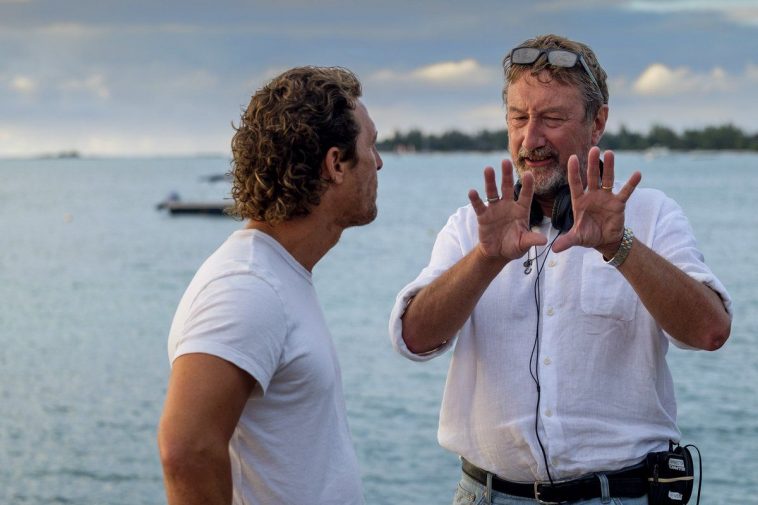





Leave a Comment